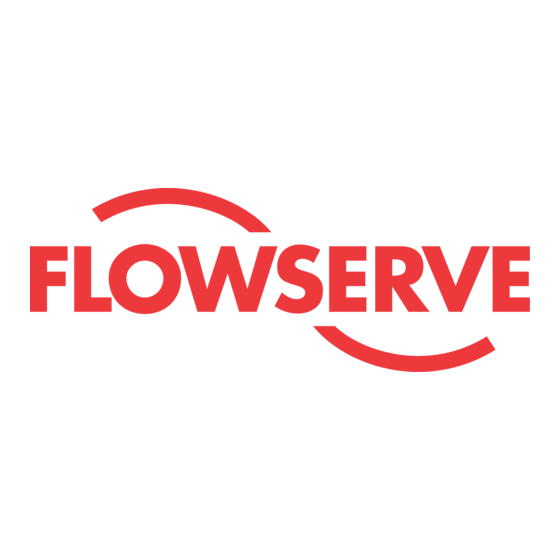
Summarization of Contents
General Information
Scope of manual
Defines the manual's coverage and purpose regarding product operation.
Disclaimer
States information accuracy and advises consulting engineers for safety and reliability.
Certification instruction
Outlines legal requirements for machinery conformity to directives like EMC and PED.
Units
Specifies the document uses dual ISO and US units for measurements.
Safety Information
Intended use
Details the product's purpose and warns against misuse or operation beyond specified parameters.
Safety symbols and description
Explains hazard symbols like DANGER, WARNING, CAUTION, and NOTICE used in the manual.
General hazard sources
Summarizes conditions and actions to prevent injury, environmental damage, and equipment damage, covering mechanical and additional hazards.
Responsibility of the operating company
Outlines the operating company's duties for ensuring personnel safety and proper operation.
Qualified personnel and targeted group
Specifies that only qualified personnel should operate, install, and maintain the unit.
Industrial health and safety measures
Advises following industry safety standards and using appropriate equipment in required areas.
Protective equipment
States that necessary protective equipment, including PPE, must adhere to facility standards.
Product Description
General product description
Introduces the FLEX as an isobaric energy recovery device for RO desalination.
FLEX design
Describes the primary components of the FLEX device, including vessel, rotor, and materials.
Function in an RO system
Explains how the FLEX transfers energy in a reverse osmosis system and its role.
System design
Details system design considerations like backpressure control valves and filtration requirements.
Header design
Discusses using headers for parallel FLEX units and guidelines for even flow distribution.
Connections
Covers piping connections, including types and pressure ratings, and auxiliary connections.
Accessories
Lists optional accessories like optical tachometers and accelerometers for monitoring.
Packaging, Lifting and Storage
Consignment receipt
Instructs on verifying received goods against documents and reporting damage or shortages.
Unpacking
Guides on visually inspecting goods upon arrival and handling them carefully to avoid damage.
Packaging
Outlines general packaging guidelines and typical Flowserve packaging methods for FLEX units.
Lifting
Provides instructions and safety warnings for lifting the FLEX unit using appropriate equipment.
Storage
Details requirements for storing the FLEX unit, including short-term and long-term methods.
Installation
Inspection and preparation
Covers location, protection of openings, support, system piping cleanliness, and rotor check.
Mounting and installation
Provides step-by-step instructions for mounting the FLEX unit and connecting it to system piping.
Operation
Commissioning
Lists essential checks to be performed before starting the FLEX system.
Start-up
Details the step-by-step procedure for starting up the FLEX unit and system.
Normal operation
Explains how the FLEX operates passively and key control factors for optimal performance.
Shut down
Outlines the procedure for safely shutting down the FLEX unit, including extended periods.
Maintenance
Maintenance procedure
States the FLEX requires no scheduled maintenance but outlines safety for any work.
Cleanliness
Emphasizes the importance of cleanliness to prevent contamination and failure of FLEX components.
Tools, equipment, and fixtures
Lists required wrench and socket sizes for assembly and disassembly.
Torque requirements
Provides specific torque values for flange bolts and tension rod cartridges.
Disassembly
Details the steps for disassembling the FLEX unit and lists components.
Reassembly
Guides on the correct procedure for reassembling the FLEX unit components.
Post-maintenance inspection
Lists checks to perform after maintenance to ensure proper reassembly and cleanliness.
Spare parts
Specifies the information required when ordering spare parts for the FLEX unit.
Troubleshooting Guide
Troubleshooting recommendations
Provides a table of common scenarios, causes, and remedies for FLEX unit issues.
Decommissioning and Recommissioning
Decommissioning
Refers to section 6.4 for proper shut-down procedures before decommissioning.
Recommissioning
Refers to sections 5 and 6.1 for proper installation and commissioning procedures.
Returns and Disposal
Returns
Outlines the process for returning products, including RMA and contamination declaration.
Disposal and recycling
Advises on environmentally responsible disposal and recycling of the equipment.
Technical Data
Equipment dimensions and weights
Presents approximate weights and dimensions for FLEX models in a table.
Nameplate
Describes the information typically found on the FLEX unit's nameplate.
Operating limits
Lists crucial operating parameters such as maximum/minimum flow, pressure, and temperature.
Noise level
Discusses noise exposure considerations and factors affecting the FLEX unit's noise levels.
Annex A: Declaration of Conformity
EU declaration of conformity
Provides an example declaration of conformity for the product according to EU directives.
Annex B: Supplementary User Instructions
Supplementary User Instructions
States that supplementary instructions for accessories are provided separately.



Need help?
Do you have a question about the FLEX 8600 and is the answer not in the manual?
Questions and answers